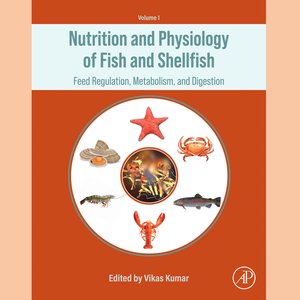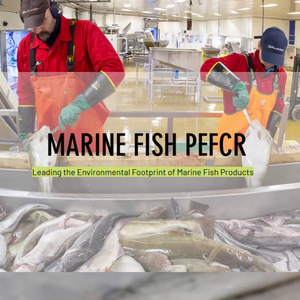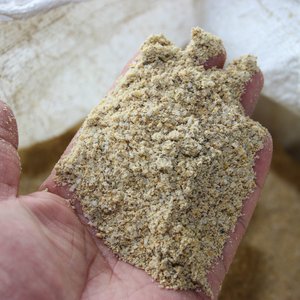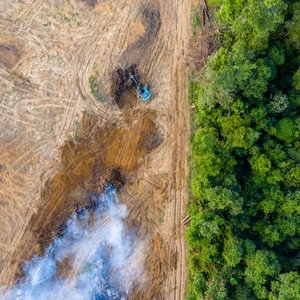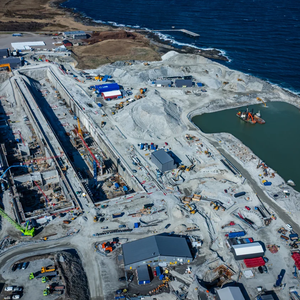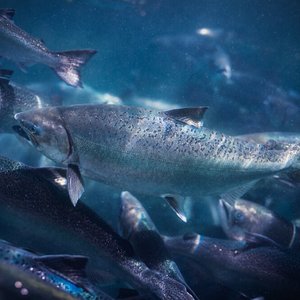The March/April 2012 Global Aquaculture Advocate is now available for free online viewing.
This issue contains a number of feed-related stories. Here are our picks:
Animal Protein Meals Reduce Feed Costs But Don’t Improve Shrimp Performance
Alberto J. P. Nunes, Ph.D.; Pedro Henrique Gomes dos Santos, Silvia Pastore, M.S.
The authors conducted a study to determine how replacement of salmon meal with various animal by-product meals in feed affected the growth performance of white shrimp. The study showed the rendered animal by-products were nutritionally inferior to salmon meal. Despite lower formula costs, replacement of salmon meal led to significant losses in shrimp performance. The losses were more significant when total replacement of salmonmeal was attempted
The Bottom Line: A Case For Better Shrimp Nutrition
Thomas R. Zeigler, Ph.D.; Scott Snyder, Ph.D.
Shrimp farm performance can often be below realistic production standards in various areas. By using scientifically proven nutrition, feeds and feeding techniques, however, profitability can be significantly improved. Many production factors affect feeding and feeding results. Equally important are the significant interactions that exist between animals and their environments. Farm managers are challenged to thoroughly understand these factors to achieve profitable crops on a continuing basis
Fishery By-Products Evaluated As Feeding Stimulants In Plant-Based Shrimp Diets
Lytha Conquest; Dong-Fang Deng, Ph.D.; Warren G. Dominy, Ph.D
New cost-effective additives will likely be needed to meet the increasing demand for feeding stimulants by aquafeed producers. In a study to evaluate the effects of Alaskan fisheries processing by-products on the feeding responses of Pacific white shrimp fed a plant protein-based diet, by-products made from fish livers, heads and/or viscera enhanced feeding responses. The study also showed the effectiveness of the by-products depended on their inclusion levels as well as processing methods used to prepare the ingredients
Ongoing Research Supports Healthy Fish Skeleton
Dr. Paul Eckhard Witten, Dr. Ann Huysseunt
Skeletal deformities in farmed fish are a recurring problem that can result from excessively fast growth, high environmental temperatures, insufficient calcium and phosphorus, and other factors. To grow properly, the bones of fish must be sufficiently mineralized. Optimal dietary supplies of vitamin and minerals can help minimize malformations. Early diagnosis followed by appropriate measures can help to avoid skeletal deformities. Good-quality x-rays and possible additional histological analysis are required
Glandless Cottonseed Meal Replaces Fishmeal In Shrimp Diet Research
Anthony J. Siccardi III, Ph.D.; Cristina M. Richardson, Ph.D.; Tzachi M. Samocha, Ph.D.; Michael K. Dowd, Ph.D.; Tom C. Wedegaertner, Ph.D
Cottonseed meal is high in protein and less expensive than fishmeal and soybean meal. Although cottonseeds contain the toxic compound gossypol, cotton plants can be engineered without gossypol in their seeds. In a study, cottonseed meal replaced up to 67% of dietary fishmeal without significantly affecting the growth and feed conversion of white shrimp, provided the diet was supplemented with marine lipid. In a subsequent growth trial, glandless cottonseed meal replaced half the fishmeal protein in a 35%-protein commercial shrimp diet
Download or read online: Global Aquaculture Advocate Mar/Apr 2012 — Volume 15, Issue 2. Hard copies available by subscription.


